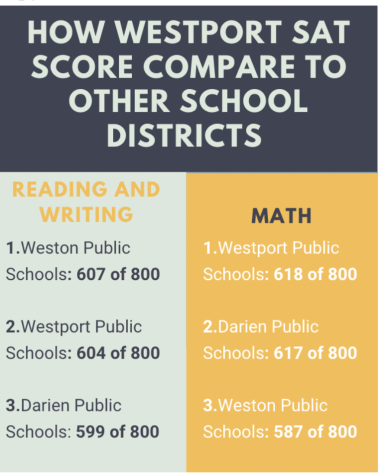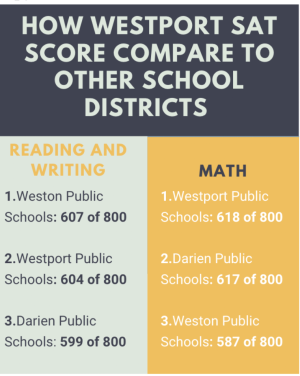Foreign language education lacks in America, Westport community
Multilingualism has been proven to have many uses, yet in America, foreign language education is severely lacking, in comparison to the rest of the world.
The issue of foreign language education in the United States is one that is as old as America itself.
The founding fathers sought to establish an “intellectual agenda” for the new country. Looking to encourage and excite scientific and economic development and productivity, they identified the fields of interest to be: medicine and history, vegetation and mineralogy, astronomy and mathematics and the study of language.
However, despite language study being a core value of the founders, nearly three centuries later, America is severely lacking in foreign language education in comparison to its global counterparts.
In 2019, the U.S. Census Bureau reported that only 20% of Americans can converse in two or more languages, compared with 56% of Europeans. A report by the American Councils for International Education from 2017 shows that out of all 50 states and Washington D.C., 20% of K-12 students are enrolled in foreign language classes In the year prior, Eurostat revealed that a median of 92% of European primary and secondary students are studying a foreign language in school.
This will be my 13th and final year in the Westport Public School system, and as someone who has experienced the breadth of foreign language education in Westport firsthand, I can honestly say that I wish more could have been done. Students enrolled in a Westport public school are required to take another language for the entirety of their primary and secondary education.
In a world where globalization is continually expanding and the economy is bringing in more cultural diversity, multilingualism has become increasingly beneficial.
— Anna Diorio '23
However, in sixth grade, students have the opportunity to choose to learn another language, thereby starting a language from scratch at 11-years old. This not only renders the prior six years of Spanish learning essentially a waste, but it sets students who chose a language other than Spanish behind Spanish students and robs them of the chance to have taken advantage of the primary years for learning a new language.
According to the Scientific American, “The ability to learn a new language, at least grammatically, is strongest until the age of 18 after which there is a precipitous decline. To become completely fluent, however, learning should start before the age of 10.”
Foreign language learning has been proven to have a number of benefits. But, Americans are deprived of these benefits to the lack of importance placed around foreign language education.
In a world where globalization is continually expanding and the economy is bringing in more cultural diversity, multilingualism has become increasingly beneficial. It opens up more career opportunities, with employers and businesses looking for individuals who can collaborate with international teams and expand their networks.
According to a report by the New American Economy, from 2010 to 2015, the demand for multilingual workers in America has more than doubled.
If America wants to maintain a strong hold within the global marketplace, it needs to more aggressively implement foreign language education across the country.
Learning a secondary language has an abundance of personal benefits. It can improve a student’s cognitive function—having the ability to enhance problem solving skills, improve both short and long term memory function and elevate verbal and spatial abilities. This subsequently results in better overall student performance.
“To maintain the relative balance between two languages,” Viorica Marian, Ph.D. and Anthony Shook report in their publication “The Cognitive Benefits of Being Bilingual,” “the bilingual brain relies on executive functions, a regulatory system of general cognitive abilities that includes processes such as attention and inhibition.”
Finally, studying another language can better our understanding of the world around us. It allows us to communicate with individuals across the globe and ultimately enhance our understanding of the vast number of cultures that exist within the very borders of our nation.
If the American government wants to maintain its strong standing on the global stage, there needs to be more funding put towards foreign language education and more aggressive enforcement of language study across the country.

Broadcast Director Anna Diorio ’23 entered Staples deeply hoping to become a part of something in the school community. Inklings proved to be a place...






























































